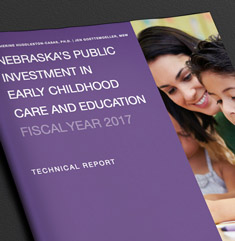
Buffet Early Childhood Institute Reports and Publications
Date of this Version
2023
Document Type
Article
Citation
Published in Early Education and Development 34:6 (2023), pp. 1414–1428. https://doi.org/10.1080/10409289.2023.2173463
Abstract
Research Findings: This study used a person-centered data analytic approach to identify distinct subgroups of early childhood educators (n= 133) based on their responses to multiple indicators of well-being (psychological, financial, and health indicators). Various fit indices established a two-class solution. Specifically, one group was characterized by more positive well-being and the other by less positive well-being. Subgroup differences were the greatest for indicators of psychological well-being, including self-care and self-compassion. In addition, educators with less than a bachelor’s degree, working as assistant teachers, receiving less pay, with more adverse childhood experiences, were overrepresented in the less positive well-being group, demonstrating system inequities and opportunities for improvement. Practice or Policy: These findings have implications for supporting the early care and education workforce. Specifically, findings suggest psychological well-being, including self-care and self-compassion, may be relevant focus areas for organizational and systems change efforts or interventions. Furthermore, findings suggest that trauma-informed approaches and support for assistant teachers are particularly important to promote equity and well-being across the workforce.
Included in
Child Psychology Commons, Developmental Psychology Commons, Early Childhood Education Commons, Educational Psychology Commons, Educational Sociology Commons, Education Economics Commons, Education Policy Commons, Policy History, Theory, and Methods Commons, Pre-Elementary, Early Childhood, Kindergarten Teacher Education Commons, School Psychology Commons


Comments
Copyright© 2023 Taylor & Francis Group, LLC . Used by permission.